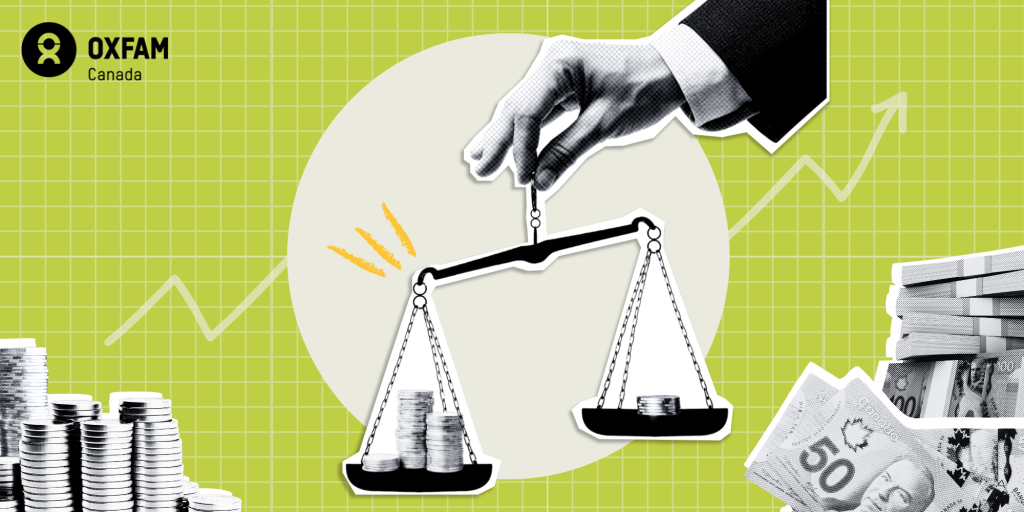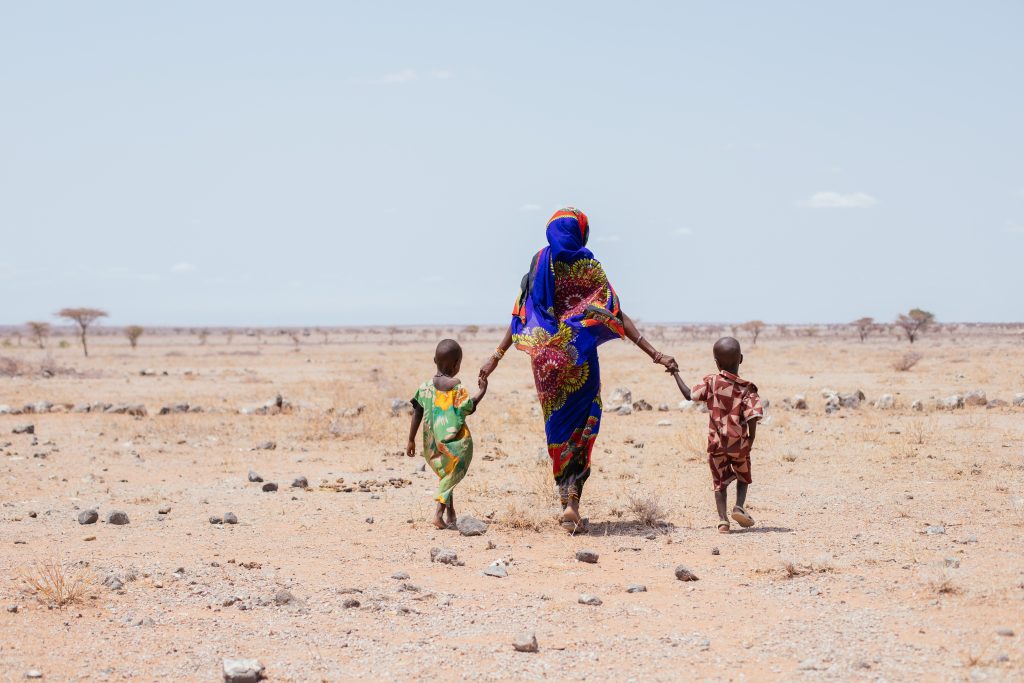Building a Canada that Works for Everyone: Oxfam Canada’s Recommendations for the Upcoming Federal Budget
Building a Canada that Works for Everyone: Oxfam Canada’s Recommendations for the Upcoming Federal Budget
As the federal government readies to table its next budget the stakes could not be higher. We are living through a time of profound uncertainly. Around the world, armed conflicts, climate disasters and economic disruptions are converging with devasting impact on people. In Canada, families are struggling to pay rent, afford groceries, and make ends meet.
Budget 2025 is more than a fiscal exercise, it's an opportunity for Canada to reaffirm its place in the world by strengthening global leadership, to build an economy that works for everyone, and to raise the revenues needed to invest in much needed public services and social protection. While the road ahead is full of challenges, with the right investments in Budget 2025, Canada can capitalize on these opportunities.
Our full list of recommendations ahead of Budget 2025 is available here.
Canada's Role in an Increasingly Fragile World
Canada has long positioned itself as a champion of peacebuilding, human rights, and international cooperation. Today, that reputation is being tested. Conflicts in Sudan, Ukraine, the Democratic Republic of Congo, and beyond are having devasting impacts on civilians. In Gaza, Israel's genocide is causing catastrophic famine and untold suffering.
Climate disasters – from drought in the Sahel to floods in Asia and East Africa – are accelerating displacement and poverty. The United Nations estimates that over 300 million people will need humanitarian assistance in 2025. Through all of this, women and marginalized communities who contribute least to global emissions continue to bear the greatest burdens of climate impacts.
We can't forget: Canada's responsibility extends beyond our borders and our credibility on the global stage rests on showing solidarity with people most affected by crises and inequality. With the right investments, Canada can move the needle in a positive direction. In Budget 2025, we recommend the government:
Invest a minimum of $10.6B in Official Development Assistance (ODA): As states cut contributions to foreign aid, Canada has the opportunity to demonstrate global leadership by maintaining our current commitment of $10.6B. This is key to ensuring priorities like the protection of women's and girl's rights are advanced, and to motivating other states to follow Canada's lead.
Establish a comprehensive fund to address humanitarian needs in Gaza: As a champion of human rights and humanitarianism, Canada must commit funds to the long-term development needs of Gaza, as well as supporting a unified, U.N.-led humanitarian response to deliver on the immediate needs of Palestinians.
Triple Canada's international climate finance commitment: Canada is set to renew its five-year commitment that helps other countries adapt to climate change. Canada must deliver an ambitious renewal of at least $20B, and commit to delivering these funds in the form of grants, so as not to further saddle low-and-middle-income countries with more debt.
A Fair and Sustainable Economy for All
Canadians are feeling the weight of an affordability crisis that has deepened since 2020 and is now made heavier by tariffs. Millions are struggling to afford daily essentials. Women, gender diverse people and people with disabilities are disproportionately carrying the burden of an unstable economy, while child poverty is increasing at an alarming rate.
Remedying this is not about economics – it's about fairness. Families should not have to choose between paying rent and buying groceries. People with disabilities should not be forced to live in poverty because social supports fall short. Care workers, who form the backbone of our economy, deserve wages and working conditions that reflect their essential role.
Further, it's essential to recognize the growing global influence of anti-rights movements, targeting women and gender diverse individuals in particular. As we seek to build an economy that works for all, gender justice must be preserved.
The next budget must deliver bold solutions, not piecemeal fixes. That means investing in the services and protections people rely on for their economic security. In Budget 2025, we recommend the government:
Increase the Canada Disability Benefit (CDB): The CDB is insufficient to meet the needs of people with disabilities. The government needs to increase the benefit to ensure all people with disabilities are receiving at least $2,400 per month, via federal and provincial supports.
Allocate $10B to the expansion of Canada's child care workforce, and increase the Early learning and Child Care Infrastructure Fund by $15B: A strong and affordable childcare system is essential to women's economic security. Canada has built momentum, but needs to reinforce that with new investments to build the workforce needed to deliver a robust childcare program, and investments to create more public spaces, ensuring access is equitable.
Invest in long-term funding for women's and gender justice organizations: Women and gender justice organizations provide a critical fabric of Canada's society, delivering services and providing decent jobs in a female dominated sector. Investments in this sector ensure that children grow up in safe environments, women are productive, and communities have a range of services available to enhance well-being.
Fair Taxation: Making the Super Rich Pay Their Share
As millions of Canadians struggle, the richest 1% continue to amass extreme wealth. In 2024, billionaire wealth grew by $309 million daily, pushing the total wealth of Canada's 65 billionaires to nearly $500B – more than the combined GDP of many countries. Meanwhile, corporate profits soared to $441B, with fossil fuel corporations reaping record gains while the climate crisis worsens.
This concentration of wealth is unjust. It undermines democracy, fuels inequality, and starves public services. When the richest and most polluting corporations don't pay their fair share, the costs shift onto ordinary Canadians who can least afford it.
Fair taxation is one of the most powerful tools to tackle inequality. Bold tax reforms can curb extreme wealth concentration, address environmental impacts, and generate resources needed for public services and climate action. In Budget 2025, we recommend the government:
Introduce a windfall profits tax on oil and gas companies: As the climate crisis intensifies, we need to put in place bold new taxes on oil and gas producers to raise the revenue necessary to respond. Our own recent study suggests that 75 percent of people in Canada are supportive of taxing emitters to cover the costs the climate crisis.
Introduce a progressive wealth tax on the richest Canadians: A wealth tax could raise over $409B in public revenue over the next decade - resources that could lift people out of poverty, strengthen public services, and support a just energy transition. All while targeting only those making more than $10M annually.
Oxfam Canada's Call to Action
Budget 2025 is a chance to make bold, people centered choices. At the time of rising inequality, global conflict, and threats to human rights, Canada must choose fairness, dignity, and security for all.
You can help advance this vision.
Call for an end to the crisis in Gaza and urge Canada to uphold its commitment to international law. Sign our petition HERE.
Call on the government to make polluters and the ultra-rich pay their fair share. By taxing the excess profits of fossil fuel giants, we can fund climate solutions and support the people most affected. Add your name HERE.

